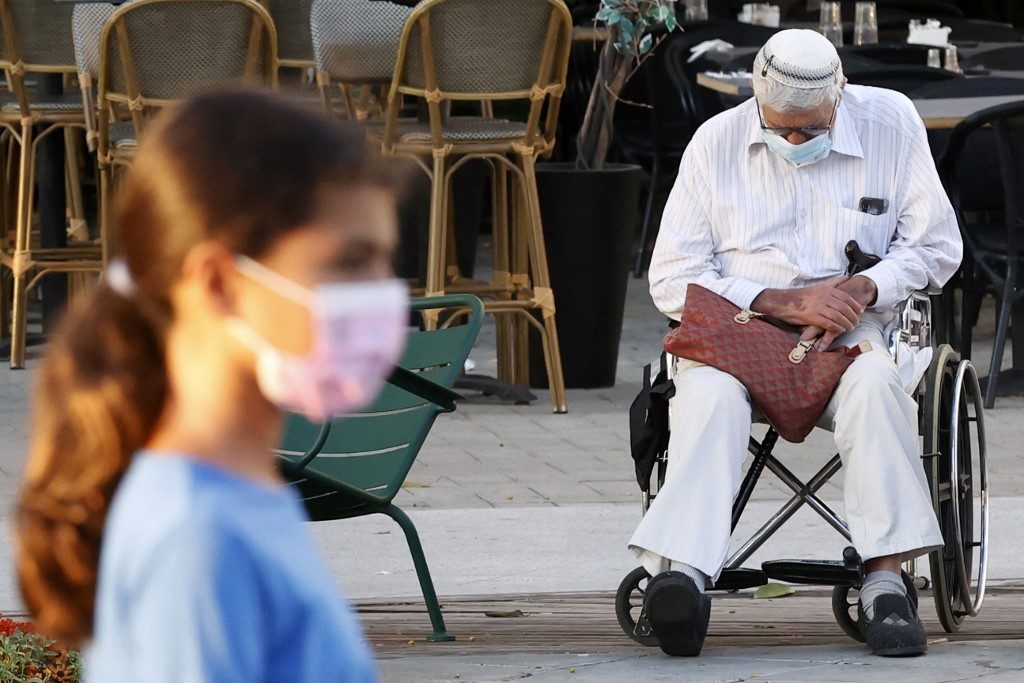SUMMARY
This is AI generated summarization, which may have errors. For context, always refer to the full article.

Israel imposed a second nationwide lockdown on Friday, September 18, to tackle one of the world’s highest coronavirus infection rates, despite public protests over the new blow to the economy.
The three-week shutdown from 2:00 pm (1100 GMT) started just hours before Rosh Hashana, the Jewish new year, and will extend through other key religious holidays, including Yom Kippur and Sukkot.
Prime Minister Benjamin Netanyahu said the government had been left with no choice but to impose a lockdown.
“The health system has raised the red flag…. We did everything we could to strike a balance between the health needs and needs of the economy,” he said in a televised address on Thursday, September 17.
While the government was praised for its initial handling of the pandemic, implementing a strict lockdown in March, many Israelis have expressed frustration at the cabinet’s perceived mismanagement of the crisis in recent months.
“We do not close a country this way,” ran a headline in the top-selling daily Yediot Aharonot on Friday, which featured interviews with doctors, economists and teachers all opposed to the lockdown.
Erez Berenbaum, director of Assuta hospital in the coastal city of Ashdod, said the “lack of clarity in the instructions will lead to defiance among Israelis.”
On the eve of the lockdown, authorities were still deciding on the details, with a rule ordering residents to stay within 500 meters (yards) of their homes extended late on Thursday to one kilometer.
During the first lockdown, the limit was set at 100 meters.
There are numerous exceptions to the new distance rule, including people going out to buy medicine or food, as well as to attend a funeral or circumcision ceremony.
Financial fallout
Bars were packed in Tel Aviv and Jerusalem on Thursday evening, despite Israel having the world’s second-highest infection rate based on an Agence France-Presse tally of the past two weeks.
Israel has ramped up testing and on Thursday 5,238 positive cases were recorded out of 56,986 tests processed.
Previously, neighboring Lebanon was the only country in the world to have ordered a second nationwide lockdown in response to the virus.
But within days of it going into effect on August 21 authorities gave up on enforcing it, in the face of overwhelming public opposition in a country in the grips of economic crisis and still reeling from its worst-ever peacetime disaster.
In Israel, coronavirus has killed 1,169 people out of a population of 9 million.
The government has branded numerous cities “red” for their high infection rates, including Netanya and Rishon Letzion, near Tel Aviv, and various neighborhoods of Jerusalem, including the Old City.
Although economic activity usually slows during the Jewish high holidays, many in Israel fear the financial fallout of the second lockdown.
Netanyahu’s government had tried various measures in recent months to avoid a full shutdown, such as weekend closures, but has repeatedly backtracked in the face of opposition.
Earlier this month, the coalition attempted to imposed localized lockdowns in places with high infection rates, only to downgrade the measure to curfews and school closures.
Netanyahu has faced weeks of public protests against his leadership and on Thursday hundreds of Israelis rallied in Tel Aviv against the second lockdown.
“The economy is in free-fall, people are losing their jobs, they’re depressed,” said protester Yael, 60, who lost her job at an architecture firm in the crisis.
“And all this for what? For nothing!” – Rappler.com
Add a comment
How does this make you feel?
There are no comments yet. Add your comment to start the conversation.